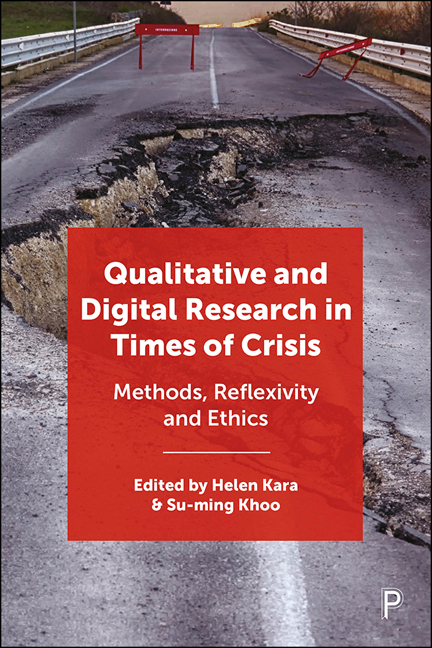11 - Researching older Vietnam-born migrants at a distance: the role of digital kinning
Published online by Cambridge University Press: 13 May 2022
Summary
Introduction
With transnational families increasingly performing familyhood online, social researchers have shifted their attention to digital methods and have also begun to document and analyse the role of Information Communication Technologies (ICTs) and what it means to engage these technologies (Wang, Myers, and Sundaram, 2013; Baldassar, Nedelcu, Merla, and Wilding, 2016; Alinejad and Ponzanesi, 2020; Baldassar and Wilding, 2020). ICTs are also increasingly incorporated into online research with migrants and their kinship networks across countries (Vildaite, 2019; Bryceson and Vuorela, 2002; Baldassar and Wilding, 2020), facilitating multi-sited studies without the need for costly and time-consuming travel. Online research practices became even more dominant during the COVID-19 pandemic because of globally restricted physical movement and social restrictions to minimise risk of infection. This emergency situation made our on-going face-toface fieldwork in Perth and Melbourne, Australia, non-viable. To address this challenge, we modified research methods to conduct the study online.
In this chapter, we explore what it means for older Vietnam-born parent migrants living in Australia to access ICTs and new media as a part of the research process. We argue that conducting ethnographic research online not only provides data on migrants’ transnational ageing experiences, but also facilitates digital kinning between researchers and participants. In particular, we observed how younger family members were relied upon to facilitate parent migrants’ online engagement. We develop our argument with two key points. First, online social practices of participants, which are usefully conceptualised as instances of digital kinning, are defined as ‘the processes of engagement with new technologies for the purpose of maintaining support networks to sustain social support and connections, maintain cultural identity, and protect social identity, which are all particularly at risk during the ageing process’ (Baldassar and Wilding, 2020: 319). Second, our reflections on the challenges and opportunities of conducting ethnographic research online by using netnography (Kozinets, 2012) allows us to explore the extent to which researchers, too, are incorporated into the practices and processes of digital kinning with participants. This point emphasises the relationship between researcher and participants, which is under-examined in the literature.
- Type
- Chapter
- Information
- Qualitative and Digital Research in Times of CrisisMethods, Reflexivity and Ethics, pp. 172 - 188Publisher: Bristol University PressPrint publication year: 2021



